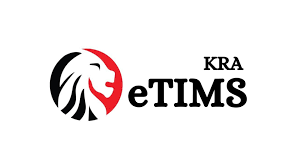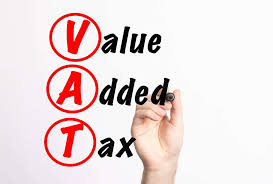Missing Trader Fraud, also known as Carousel Fraud, is a form of Value Added Tax (VAT) fraud that occurs when the seller collects VAT on the sale (output) but fails to remit it to the tax authorities, effectively disappearing (“missing”) with the VAT collected. The term “missing traders” refers to those individuals who engage in the supply of non-existent products to perpetuate the scheme.
Another common “missing trader scheme” is where individuals may opt to register their suppliers as companies, preferably using stolen identities to obscure ownership trails. They would then register these companies for VAT. By generating invoices for fictitious purchases from these “ghost” traders, individuals could fraudulently claim VAT on inputs and nonexistent expenses, thereby reducing their tax obligations.
Economic crime
During the analog era, evading taxes was relatively straightforward. In 2015, the Kenya Revenue Authority (KRA) disclosed a Ksh 30 billion tax evasion scheme dubbed the “Missing Trader Scheme,”. This scheme involves the issuance of fake invoices.
Missing trader schemes are recognized as economic crimes, prompting organizations like the Organization for Economic Co-operation and Development (OECD) to develop best practices to address them. These efforts mainly focus on reforming tax laws due to the significant threats tax crimes pose to the strategic and economic interests of nations. Such crimes erode citizens’ trust in the tax system. The Kenya Revenue Authority (KRA) has adopted OECD’s Ten Global Principles for Fighting Tax Crime, integrating them into domestic laws and regulations concerning taxation and customs.
Tax compliance hurdles for legitimate traders.
The Kenya Revenue Authority has responded to the missing trader challenge by advancing a VAT administration system that requires traders to have Electronic Tax Register (ETR) machines which enable the Kenya Revenue Authority (KRA) to authenticate their sales as those from VAT registered suppliers at the time of generating the invoice.
While tax regulations are necessary for funding government activities and ensuring fairness in the tax system, excessive or poorly designed regulations can hinder the activities of genuine traders and impede economic growth. The following are various tax compliance difficulties that genuine traders face due to increased regulation.
- Compliance Challenges: Traders may struggle to keep up with frequent changes in tax regulations, especially if they operate in multiple jurisdictions with varying tax laws. This can increase the likelihood of unintentional non-compliance and expose traders to penalties and legal risks.
- Risk Aversion: To mitigate the impact of increased tax regulations, traders may become more risk-averse in their investment decisions. This could result in a conservative approach to trading, potentially limiting opportunities for growth and wealth accumulation.
- Compliance Costs: More stringent tax regulations often require additional paperwork, reporting, and record-keeping. This can increase the administrative burden on traders, leading to higher compliance costs in terms of time and resources.
- Complexity: As tax regulations become more intricate, traders may find it challenging to navigate the tax code and understand their obligations fully. This complexity can lead to errors in tax filings and potential penalties for non-compliance.
- Reduced Investment: Stringent tax regulations can discourage investment and risk-taking behavior among traders. If traders perceive the tax burden as too high or the regulations too restrictive, they may be less inclined to invest in new ventures or expand their operations.
- Impact on Cash Flow: Tax regulations often dictate when taxes must be paid, which can affect a trader’s cash flow. Compliance with new regulations may necessitate setting aside funds for tax obligations, reducing the amount of capital available for investment in business growth or day-to-day operations.
- Risk of Penalties and Audits: Increased tax regulations raise the stakes for non-compliance. Genuine traders face a higher risk of facing penalties, fines, or audits if they inadvertently violate any of the new regulations.
- Technology Adoption: Many aspects of trade documentation and tax compliance are becoming increasingly digitized, requiring traders to adopt new technologies and systems for document management and reporting. However, not all traders may have the resources or expertise to implement these technologies effectively, leading to compliance challenges.
Conclusion
The escalating regulatory burden on genuine traders has created significant tax compliance challenges, impeding their ability to operate efficiently and effectively. Excessive regulations and compliance measures often lead to increased administrative burdens, compliance costs, and potential legal risks for traders striving to abide by the law.
These complexities not only strain resources but also divert attention from core business activities, stifling innovation and growth. Addressing these challenges necessitates a balanced approach that promotes compliance without unduly burdening legitimate traders, fostering a regulatory environment that encourages entrepreneurship and economic development while ensuring tax obligations are met responsibly and fairly. At FHC, we work with organizations to better understand their tax risk and respond with appropriate tax plans, reach out to us today.












